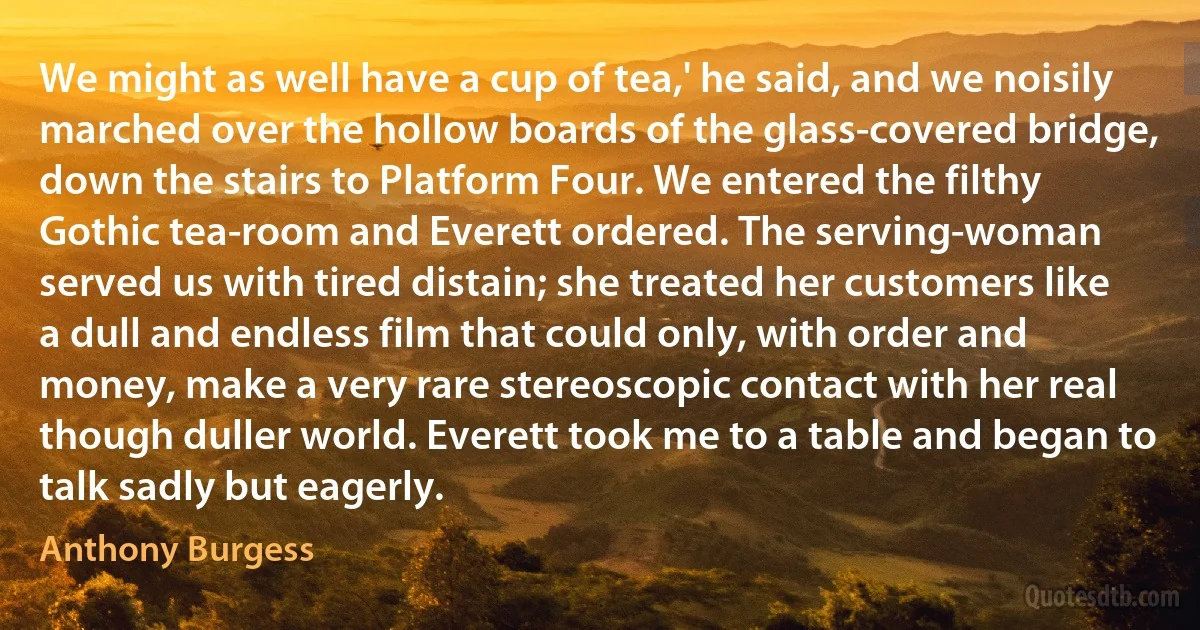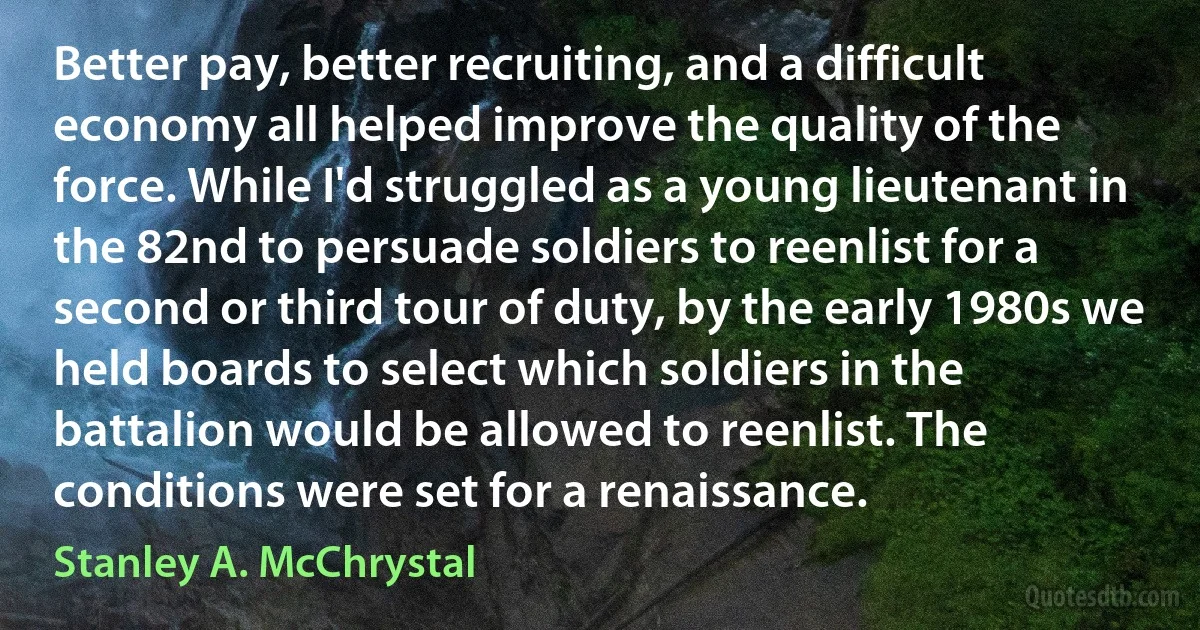Boards Quotes - page 2
What is going on here is a deliberate revision by Current not only of Lincoln but of himself in order to serve the saint in the 1980s as opposed to the saint at earlier times when black were still colored, having only just stopped being Negroes. In colored and Negro days the saint might have wanted them out of the country, as he did. But in the age of Martin Luther King even the most covertly racist of school boards must agree that a saint like Abraham Lincoln could never have wanted a single black person to leave freedom's land much less bravery's home. So all the hagiographers are redoing their plaster images and anyone who draws attention to the discrepancy between their own past crudities and their current falsities is a very bad person indeed, and not a scholar, and probably a communist as well.

Gore Vidal
The Hindus have not the slightest affinity towards you, as they have towards Muslims. They consider Muslims closer than you. Hindus and Muslims are helpful to each other in local boards, in legislative councils, and in business. But is there a single instance of such sympathetic consideration shown towards you by the caste Hindus? On the contrary: they always cultivate hatred against you in their minds. What dreadful effects this hatred has produced, can be heard from those who have had occasion to go to the court for justice or to the police for help.

Bhimrao Ramji Ambedkar
I'm obsessed with the countryside: woods, forests, fields, lakes, mountains. I'm really into folk music and folklore. But more so I'm into electronic music. I'm into bands that have both aspects, like Boards of Canada is a perfect example. You could listen to that type of music running through a woods. It's kind of what I wanted to achieve.

Ellie Goulding
National elections. Nothing is so fundamental to the integrity of a republican form of government as honesty in all that relates to the conduct of elections. I am of the opinion that the national laws governing the choice of members of the Congress should be extended to include appropriate representation of the respective parties at the ballot box ant equality of representation on the various registration boards, wherever they exist.

Calvin Coolidge
District of Columbia welfare. The welfare work of the District of Columbia is administered by several different boards dealing with charities and various correctional efforts. It would be an improvement if this work were consolidated and placed under the direction of a single commission.

Calvin Coolidge
There being several strong fortifications in and about King's Bridge, if the enemy should throw in a thousand or fifteen hundred men,, they could cut off our communication effectually; and, as the state of the barracks is, they would find exceeding good cover for the men. But if we were to take the barracks down, if the boards were not removed, it would, in a great measure, deprive them of that advantage. However, I have not had it in my power to do either as yet.

Nathanael Greene
I have directed all the wagons that are on the other side to be employed in picking up the scattered boards about the encampments. I believe, from what I saw yesterday in riding over the grounds, they will amount to several thousands. As soon as we have got these together, I purpose to begin upon the barracks. In the mean time, I should be glad to know if your Excellency has any other orders to give respecting the business.

Nathanael Greene
Never before in the history of warfare has there been a more convincing example of the effectiveness of sea power than when, despite this undefeated, well armed, and highly efficient army, Japan surrendered her homeland unconditionally to the enemy without even a token resistance. The devastation wrought by past bombings plus the destruction of the atomic bombs spelled nothing less than the extinction of Japan. The bases from which these attacks were launched- Saipan, Iwo Jima, and Okinawa- were to have been the spring boards for the mightiest sea-borne invasion yet conceived by man. The "fighting fleets" of the United States which had made possible every invasion victory for America were ready and waiting. The Japanese had two alternatives; to fight and face destruction, or to surrender. The Imperial Japanese Empire chose to surrender.

William Halsey
We know that this election is about the kind of America we will live in and the kind of America we will leave to future generations. When it comes to the character of America, President Obama and I have very different visions. Government is at the center of his vision. It dispenses the benefits, borrows what it cannot take, and consumes a greater and greater share of the economy. With Obamacare fully installed, government will come to control half the economy, and we will have effectively ceased to be a free enterprise society. This President is putting us on a path where our lives will be ruled by bureaucrats and boards, commissions and czars. He's asking us to accept that Washington knows best – and can provide all.

Mitt Romney
It had been the winter of 1835-6 that the ship, Alert, in her voyage for hides on the remote and almost unknown coast of California, floated into the vast solitude of the bay of San Francisco. All around was the stillness of nature. One vessel, a Russian, lay at anchor there, but during our whole stay not a sail came or went. Our trade was with remote missions, which sent hides to us in launches manned by their Indians... Over a region far beyond our sight there was no other human habitations, expect that an enterprising Yankee, years in advance of his time, had put up, on the rising ground above the landing, a shanty of rough boards, where he carried on a very small retail trade between the hide ships and the Indians. On the evening of Saturday, the thirteenth of August, 1859 (I again sailed into) the entrance to San Francisco, (now) the great center of worldwide commerce.

Richard Henry Dana, Jr.
America represents more than just an economic system; it is an entire cultural and social order, a plutocracy, a system of rule that is mostly by and for the rich. Most universities and colleges, publishing houses, mass circulation magazines, newspapers, television and radio stations, professional sports teams, foundations, churches, private museums, charity organizations, and hospitals are organized as corporations, ruled by boards of trustees (or directors or regents) composed overwhelmingly of affluent business people. These boards exercise final judgement over all institutional matters.

Michael Parenti
As I opened the door - I heard cattle - many - in the pens over by the track - lowing - I wonder if you ever heard a whole lot of cattle lowing - it sounds different here - too - just ground and sky - and the lowing cattle - you hardly see - either them or the pens - the pens are of weather beaten boards - take on the color of the ground it seems - I like it and I don't like it - its like music - I made up a tune this morning - Well - I heard the cattle - as I opened the door - and I liked it and I didn't liked it - then I read your letter as I walked to breakfast - a great letter - Anita.

Georgia O'Keeffe
If a kid is being bullied at school, my advice to them is to punch the bully in the face. The government can create as many boards, commissions, and informational sessions on sensitivity that it wants. The fact is, we still have bullies, and we still have victims who are trained not to stand up for themselves.

Joe the Plumber



